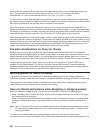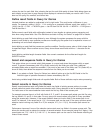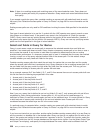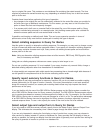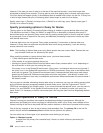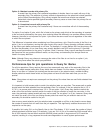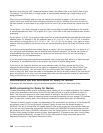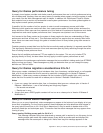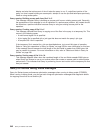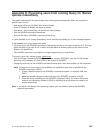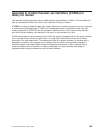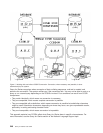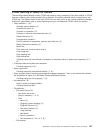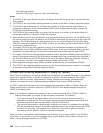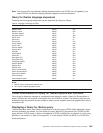
display and also the total amount of time it takes the query to run. If a significant portion of the
query run time is spent building an access path, attempt to use the tips and techniques previously
listed on using access paths.
Query running. Building access path from file X in Y.
This message indicates Query is building an access path from an existing access path. Generally,
the appearance of this message is not an indication of a performance problem, but instead should
be viewed as a positive indication because Query is using an existing access path for the
operation.
Query running. Creating copy of file X in Y.
This message indicates that Query is copying one of the files in the query to a temporary file. This
occurs in the following cases:
v A multi-format logical file is specified
v A join logical file is specified with a join type that does not match the query’s join type
v A complex SQL View is specified
If the temporary file is created for a join as described above, try to avoid this type of operation.
Refer to “Using join operations in Query for iSeries” on page 238 for more information on this item.
If this message occurs because the total length of the sort fields is greater than 2000 bytes, this
may be reason for concern. For more information on this, refer to “Select sort fields in Query for
iSeries” on page 236.
Query running. Sorting copy of file *N in *N.
This message appears either when the combined length of the sort fields exceeds 2000 bytes or
when Query has chosen to use a sort routine rather than create an access path to achieve better
performance. This indicates that Query is performing its own sort routine on the temporary file that
was just created.
Query for iSeries debug mode messages
Query for iSeries issues performance optimization messages when running in debug mode (STRDBG).
When running in debug mode, you also get such things as optimization messages and diagnostic details
for mapping errors that do not end the job.
242 Query for iSeries Use V5R2



